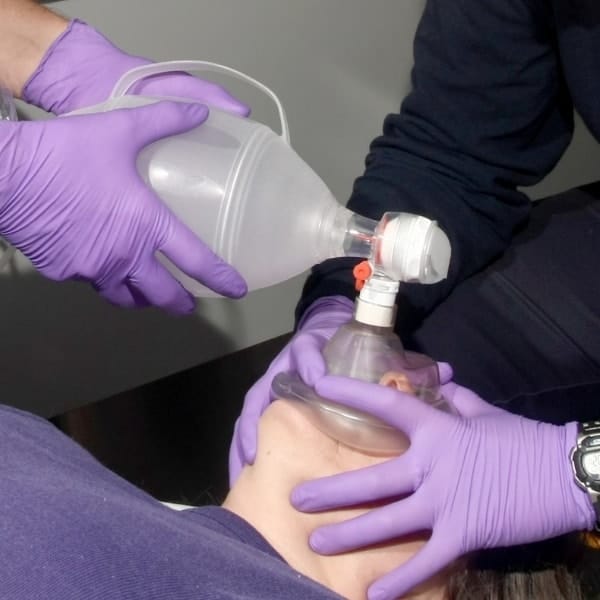
Dan Limmer, BS, NRP

by Dan Limmer, BS, NRP
Our articles are read by an automated voice. We offer the option to listen to our articles as soon as they are published to enhance accessibility. Issues? Please let us know using the contact form.
Our most recent NREMT review webinar was action-packed. We covered nine diverse NREMT practice questions, talked about the best test-taking strategies, learned how multiple response questions work, and had a Q&A.
With all of that, we didn’t have time to answer every question our attendees asked us during the webinar. But our Chief Knowledge Officer, longtime educator, and Emergency Care textbook author Dan Limmer is here with answers to some of the FAQs. They’re good questions and have practical application outside of the webinar.
If you have questions about how the exam itself works (like how the NREMT scores your exam, how to prepare, when to take it, practical vs. cognitive, etc.), check out our NREMT FAQs Part 2.
We had an example test question about a patient with crushing substernal chest discomfort. This prompted several audience questions about aspirin administration. The questions fell into two categories:
Do you need a set of vitals in order to administer aspirin?
What if the patient is allergic to aspirin?
Aspirin helps prevent platelet aggregation. That means it helps reverse the common processes that cause myocardial infarction. It should be administered early. Patients can take it themselves before you arrive, and emergency medical dispatchers instruct patients to take it. There is no need for vital signs.
Allergies are important. If a patient is allergic to aspirin, you shouldn’t administer it. The last thing a patient with a MI needs is anaphylaxis! The only other contraindication is an active GI bleed. EMS is about thinking and balance. Make good decisions.

Do you ALWAYS follow “BLS before ALS” on NREMT-P questions?
We don’t like using the word ALWAYS. If you are taking an advanced exam, you may get a BLS question about ventilation, CPR, splinting, etc. You may also get questions specifically about an ALS modality of skill. The exam isn’t structured to make you choose between BLS and ALS—it is designed to have you make the choice that the patient in the question needs at that point. If you have an unresponsive patient, you do BLS airway maintenance before starting a line in the field. It is no different here.
The only ALWAYS is to choose the best answer from the four (or more) choices you are given.

When do you start compressions for pediatric patients?
The AHA says you should start compressions in pediatric patients with a pulse less than 60/minute if they don’t respond to oxygenation and/or ventilation. You can find that in this AHA publication (look on page 17 of the publication, which is page 19 of the pdf).
Are there contradictions to giving infants naloxone?
Our question about the 6 month old who put a heroin balloon in their mouth may be the most commented on. In their 2020 guidelines (also referenced above), the AHA says this in reference to pediatric patients:
2020 (Updated): For a patient with suspected opioid overdose who has a definite pulse but no normal breathing or only gasping (i.e., a respiratory arrest), in addition to providing standard PBLS or PALS, it is reasonable for responders to administer intramuscular or intranasal naloxone.
2020 (Updated): For patients known or suspected to be in cardiac arrest, in the absence of a proven benefit from the use of naloxone, standard resuscitative measures should take priority over naloxone administration, with a focus on high-quality CPR (compressions plus ventilation).

![]()
Doing NREMT review sessions always prompts interesting audience questions that help deepen understanding of clinical concepts and promote the critical thinking necessary for NREMT success.
If you’d like to participate in regular review sessions, you can! Our subscription site, EMTReview.com, offers EMT and paramedic students the chance to join weekly, live NREMT review sessions with Dan Limmer. It’s one of many benefits the site offers for NREMT prep. There are also detailed study guides, practice exams, diagnostic tests, videos, checklists, and more.

Dan Limmer, BS, NRP

Dan Limmer, BS, NRP